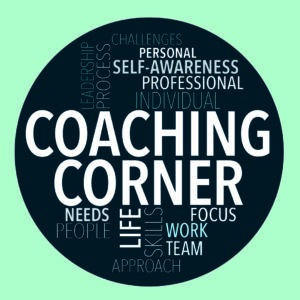
Letting go to grow: How one entrepreneur reclaimed his life and business
Frank's transformation from overwhelmed investor to empowered leader demonstrates how coaching and collaboration enabled him to stand back, delegate, and recover his life....

by Amin Kaboli Published January 20, 2024 in Coaching Corner • 4 min read

Jo is a CTO at a large organization and heads up AI product management across the business. This is a dynamic and highly demanding role that requires Jo to make a number of projections and critical decisions at the start of each business cycle. To drive momentum and keep a step ahead of fast-moving change, Jo attempts to integrate a set of stretch goals and challenges into cycle planning – resolutions, in a sense – that speak to personal as well as professional ambitions. Among these are making time for more physical exercise and charity work, developing more caring as well as daring attitudes and practices as a team leader, and streamlining processes around AI product selection such that they align better with the organization’s values. But there’s a problem.
For all of Jo’s best intentions, many of these goals remain unrealized as the business cycle gets underway. Too many things get in the way: the many exigencies of Jo’s role, unforeseen problems to manage, the pressures and rhythms of day-to-day life make it almost impossible to accomplish all of Jo’s ambitious resolutions. As a result, Jo is feeling guilty and at times inadequate, and comes to IMD to find solutions with help from an executive coach.
Jo is struggling to turn ideas into action; goals and intentions are falling into a gap between knowing and doing such that Jo is becoming reactive rather than proactive in the space between planning and execution.
The coaching journey begins with a simple but effective shift in approach. Instead of stopping to review performance against these goals every week or month, Jo will now only assess progress once a quarter. This shift means that Jo’s resolutions become more of a vision for the future, and less of the demoralizing, monthly to-do lists that they have been until now. Jo’s coach uses the language of AI product management to encourage Jo to see goals and resolutions as a form of continuous discovery, akin to the AI product discovery dynamics that Jo uses every day. As the coach asks Jo a range of questions that explore how this personal discovery process can be best calibrated to flow over obstacles and disruptions to progress, something critical emerges.
Reflecting on why good intentions sometimes fail to translate into meaningful actions, Jo shares that in childhood, studying was “never a strong point.” Digging deeper, it emerges that Jo historically struggled with things like homework and, while grades were generally good, Jo was never the “star pupil” – something that is perceived (rightly or wrongly) as having been a “disappointment” to Jo’s parents. These are feelings of guilt and inadequacy that Jo has carried from childhood through into adulthood, and transposed onto relationships at work. Jo’s CEO, as a figure of authority, has taken on the role of Jo’s parents in the sense that the CEO might also be “disappointed” with Jo’s failure to realize every new resolution or goal. Jo feels the childhood narrative is simply repeating.
Jo found unpacking these emotions and identifying their provenance empowering. Working with the coach, Jo begins to detach from guilt and a sense of inadequacy – emotions tied to the past – and to simply observe them. As Jo gains distance and perspective, negative emotions begin to lose their potency and the power to shape self-worth and confidence.
Jo’s coach shares a powerful poem by the Persian poet Jalaluddin Rumi, The Guest House, which posits the metaphor that humans are houses into which emotions must be invited like transient and “unexpected guests”. Even a “crowd of sorrows” is an opportunity to observe and learn, writes Rumi, and may be “clearing you out for some new delight.”
Reframing emotions in this way, understanding their ties to past experience, and shifting from a continuous to longer-term cycle of assessment, Jo now feels ready to make an important pivot: to refocus on goals or resolutions that align more with what Jo wants to do and less around the (perceived) expectations of others and to let go of feelings of guilt and inadequacy – to observe them, learn from them, and allow them to inform the discovery process.
Things have started to change for Jo at work. Deadlines still come and go and are sometimes missed. Meanwhile, Jo has learned to release any feelings of guilt without reacting to them. Switching from reactive to proactive, Jo has become far more adept at aligning priorities, adjusting and negotiating deadlines, and saying “no” whenever necessary. A printed draft of The Guest House hangs on a wall in Jo’s office.
If you are entering this new year or a new business cycle with a clutch of resolutions or business goals to achieve, ask yourself:
In the Coaching Corner series, we share real-world, practical coaching scenarios. Read on to discover the specific challenges highlighted in the cases and the insights that could help you navigate and find solutions to your own multifaceted challenges. How might these insights and questions apply to you?

Lecturer at the Institute of Mechanical Engineering at EPFL
Amin Kaboli is a lecturer at the Institute of Mechanical Engineering at EPFL and has a particular interest in people, process, and technology. He teaches several courses on “change and transformation” to business executives, managers, and graduate students.

May 9, 2025 • by Vincent Pieterse in Coaching Corner
Frank's transformation from overwhelmed investor to empowered leader demonstrates how coaching and collaboration enabled him to stand back, delegate, and recover his life....

May 2, 2025 • by Sunita Sehmi in Coaching Corner
Sarah, a senior manager at a global pharmaceutical company, excels in her role but feels overwhelmed by workplace demands. Struggling to assert herself and make aligned personal decisions, she recognizes the need...

February 13, 2025 • by Nadine Hack in Coaching Corner
Through mentoring, team empowerment, and striking a balance between leadership and personal development, Susan, a female CEO, overcomes micromanagement and burnout....
Explore first person business intelligence from top minds curated for a global executive audience